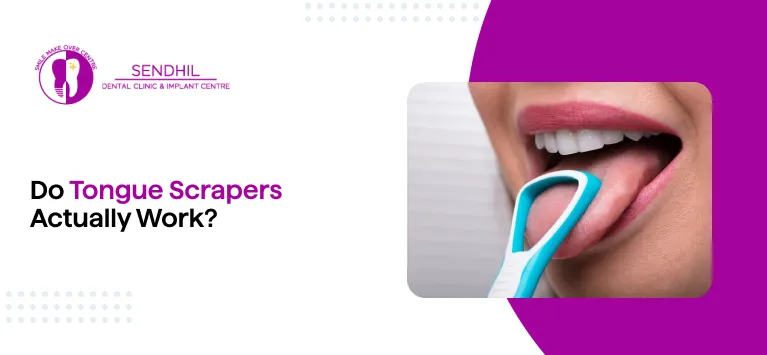
Do Tongue Scrapers Actually Work?
Tongue scraping is a popular oral hygiene practice that many people turn to for fresher breath and better overall oral health. But does it really work? In this blog, we will explore the benefits of tongue scraping, backed by scientific findings and expert opinions. Research indicates regular tongue scraping can help reduce bacteria buildup, improve breath freshness, and enhance oral hygiene.
Studies have shown that cleaning the tongue can remove a significant amount of bacteria contributing to bad breath, with one study revealing up to a 75% reduction in bacteria. Keep reading to discover how this simple habit could improve your dental health.
Table of Contents
What is a Tongue Scraper?
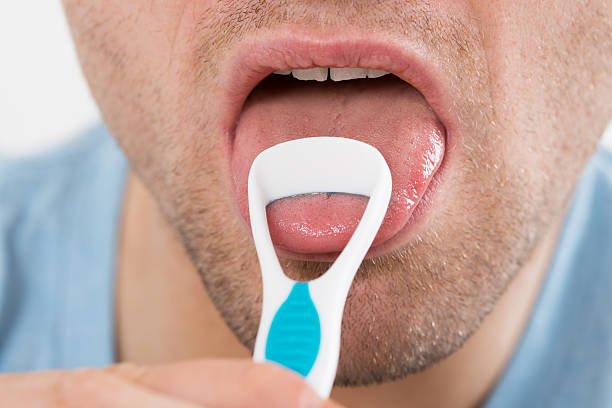
A tongue scraper is a simple tool designed specifically to clean the surface of your tongue. It’s usually a small, curved instrument made of plastic or metal that gently scrapes away the layer of bacteria, food particles, and dead cells that can accumulate on the tongue.
While toothbrushes can be used to clean the tongue, a tongue scraper is designed to do a more effective job by removing debris without spreading it around. It’s easy to use and can be a helpful part of your daily oral care routine, reducing bad breath and keeping your mouth fresh.
Why Do We Need to Clean Our Tongues?
Though brushing and flossing are essential, many people overlook their tongues. Our tongues trap bacteria, food particles, and dead cells that can cause issues if left unaddressed.
- Bad Breath: A common cause of bad breath (or halitosis) is the bacteria living on our tongues.
- Oral Health: Bacteria on the tongue can lead to plaque buildup on teeth and gums.
- Taste Sensation: A coated tongue may affect taste, reducing your ability to enjoy food fully.
Is It Important to Clean Your Tongue?
Yes, cleaning your tongue is essential for a healthy mouth! The tongue’s surface is covered in tiny grooves and taste buds where bacteria, food particles, and dead cells can easily get trapped. Over time, these substances build up, leading to several common issues:
- Bad Breath: When bacteria build up on the tongue, they can produce sulfur compounds, a primary cause of bad breath.
- Plaque and Oral Health Problems: Bacteria on the tongue can transfer to teeth and gums, contributing to plaque formation and potentially leading to gum issues.
- Coated Tongue and Dull Taste: Without cleaning, the tongue can develop a thick coating that looks unpleasant and blocks taste buds, dulling the taste of food.
Scientific Evidence Supporting Tongue Scrapers
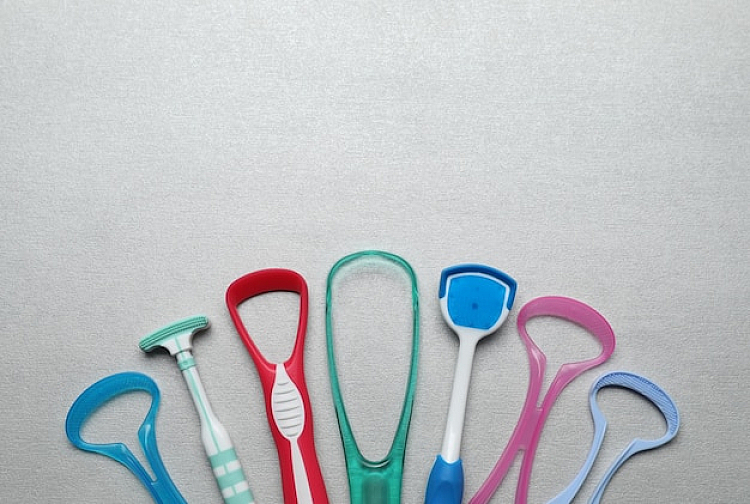
Scientific studies support the benefits of tongue scraping, showing it to be an effective tool for improving oral hygiene. According to a study published by PMC (National Institutes of Health), tongue scraping significantly reduces bacterial load on the tongue, which is a key contributor to bad breath. The study found that tongue scraping reduced the levels of volatile sulfur compounds (VSCs) by up to 75%, primarily responsible for halitosis.
Further studies referenced by The New York Times confirm that tongue scraping reduces bacteria and plaque buildup, contributing to better oral health and fresher breath. A study found that tongue scraping can remove up to 90% of the bacteria, contributing to foul odor and oral health issues. This evidence underscores how incorporating tongue scraping into daily oral care routines can significantly benefit mouth cleanliness and breath freshening.
How do Tongue Scrapers Work?
Using a tongue scraper is simple: gently run it from the back of your tongue to the tip, removing the coating that builds up. This physical scraping removes debris and bacteria, leaving the tongue cleaner.
Yes, tongue scrapers can be effective when used regularly. Let’s look at some benefits based on what research and dentists say:
1. Reduces Bad Breath
- How It Helps: By removing the bacteria and debris, tongue scraping can reduce the buildup that leads to bad breath. Studies show that tongue cleaning can be more effective at reducing bad breath than brushing alone.
2. Improves Oral Health
- How It Helps: Regular scraping helps prevent bacteria from transferring to your teeth and gums, which can aid in reducing plaque and gum issues.
3. Enhances Sense of Taste
- How It Helps: Scraping the tongue can remove any coating that dulls taste buds, allowing you to enjoy flavors more fully.
4. Contributes to Overall Health
- How It Helps: Oral bacteria aren’t just a local issue; they can affect overall health. Some studies link poor oral hygiene to systemic health issues, so tongue scraping could be a simple step toward better health.
Is a Toothbrush Enough, or Is a Tongue Scraper Better?
Many question whether brushing their tongue with a toothbrush is as effective as using a scraper. While toothbrushes can help, they aren’t specifically designed to clean the tongue’s surface as thoroughly as a scraper. Here’s a comparison:
- Toothbrush: May clean some surface debris but often pushes bacteria around without entirely removing it.
- Tongue Scraper: Specifically designed to scrape off bacteria, food particles, and dead cells effectively and quickly.
How to Use a Tongue Scraper Correctly
It just takes a few seconds to use a tongue scraper.
- Start at the Back: The scraper should be positioned as far back on your tongue as is comfortable.
- Pull Forward: Gently pull it forward across the tongue.
- Rinse: Rinse off the scraper and repeat until your tongue feels clean.
- Frequency: Once a day, preferably in the morning, is usually enough.
Are There Any Risks to Tongue Scraping?
While tongue scraping is generally safe, there are a few precautions to keep in mind:
- Avoid Over-Scraping: Too much pressure can damage taste buds or irritate the tongue.
- Use a Clean Tool: Always rinse your scraper before and after each use to keep it hygienic.
- Replace Regularly: Like a toothbrush, tongue scrapers should be replaced periodically, especially if they show signs of wear.
What Type of Tongue Scraper Should You Use?
Tongue scrapers come in various materials, with common options being plastic and metal.
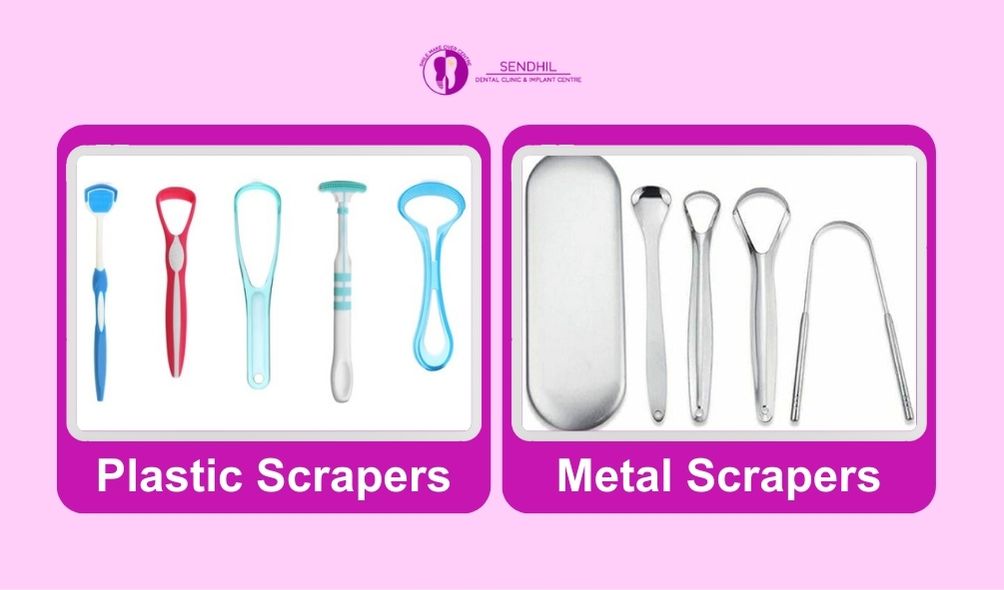
- Plastic Scrapers: Lightweight and affordable, these are good for beginners but may need replacing more frequently.
- Metal Scrapers: Durable, often stainless steel, metal scrapers are a popular choice for long-term use and can be easily cleaned.
Choose whichever feels comfortable, as both types can be effective.
Can Tongue Scraping Replace Mouthwash or Brushing?
No, tongue scraping is not a replacement for brushing, flossing, or using mouthwash. It’s an additional step that complements your oral hygiene routine.
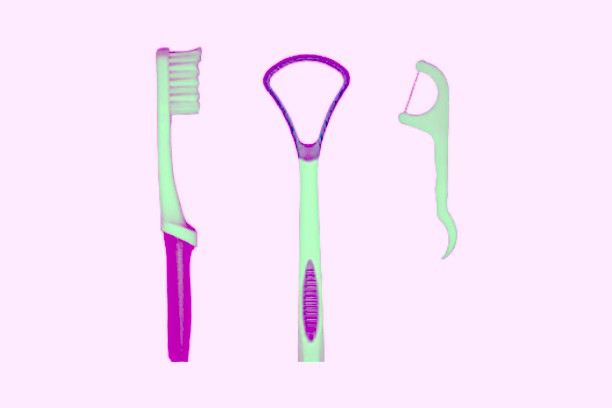
- Brushing cleans the teeth.
- Flossing cleans between the teeth.
- Tongue Scraping cleans the tongue surface.
Together, these steps can provide a more comprehensive approach to oral health.
Final Thoughts: Are Tongue Scrapers Worth Adding to Your Routine?
Yes, tongue scrapers can be a valuable addition to your oral care routine. Research shows they effectively reduce bacteria and sulfur compounds that contribute to bad breath, with studies indicating a potential 67% decrease in volatile sulfur compounds, a major source of halitosis. Comparatively, scraping is more effective than brushing alone, especially for cleaning the back of the tongue, which is often harder to reach with a toothbrush. Tongue scraping is a quick, simple step to achieve fresher breath and improve taste perception.
Regular tongue scraping can offer clear benefits for those looking to enhance their oral hygiene and is worth considering alongside daily brushing and flossing.




